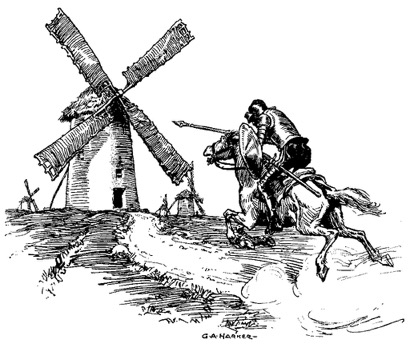Conflating

"My weaknesses could be my greatest strengths in unlikely guise."
Conflating doesn't have to mean mistaking one thing for another. Congruent conflating means nothing more sinister than combining two separate entities to produce an integrated new whole. Incongruent conflating, though, juggles apples and oranges while imagining them the same because they both travel beneath the ambiguous flag of fruit. Add a tomato into this conflation, and a logical fallacy might become more obvious, since most of us know but cannot quite accept that tomatoes are fruits rather than vegetables. Conflations seem to say much about how one parses their world. Insanity involves employing differing parsing strategies. So does genius. Seeing similarities between traditionally divisive distinctions can create harmony or great discord. Jesus is said to have insisted that he would see the unapologetic sinner on an adjacent cross in paradise. His conflation of sinner and penitent might have blown up the distinction between good and evil. He claimed that all humans are sinners. How do we tell the good guys from the bad one, then? Hat color? Religious turmoil persists.
Conflating has become a growth industry. In politics, insisting upon equivalence between two opposing sides simply because they're each sides—two sides of one coin, as one popular idiom insists—says much about the commenter's parsing strategy, but, sadly, little about actual experience. Integration can become either a lofty goal or a degrading lowly one, depending upon who's conflating what. Apples and oranges seem innocuous. Ants and elephants, must less so. Compassion and greed, even less.
How might I know when I've crossed the line between usefully evaporating distinction and harmfully conflating one? At one level, it seems unarguably true that we're all the same. At many finer levels of distinction, this observation seems much less likely. Our beliefs divide us. Our convictions seem to convict us to seriously hard labor, insistent upon maintaining difference at almost any cost. The United States was founded as an experiment in bringing together unresolvable differences along a line of presumed commonality. This line has varied in width and strength, sometimes seeming spider-thread thin, other times, steel beam strong, but the founders seemed to have intended for the deep differences to go along, if only to the extent of that one long, commonly defining line. We sometimes seem an integrated long division machine, connected only by our persistent ability to identify divisions between us.
We routinely conflate contexts, innocently or deliberately registering opinions within contexts where opinions could not matter. We may not vote on the weather without seeming insane. We might reasonably insist, though, upon reviewing poll results before deciding whether we'll publicly declare whether it's actually raining outside. We conflate rights with privileges, robbing ourselves of choice by refusing to rescind privileges that threaten our rights. Our President seems to conflate leadership with kingship, a useful conflation for the purposes of analysis, perhaps, but a catastrophic one when applied to a democratically-elected Presidency in service to We, the people. I struggle to integrate my many disparate pieces. I can shamelessly conflate in the service of such ends. My enemies might actually be cleverly disguised friends. My weaknesses could be my greatest strengths in unlikely guise.
©2019 by David A. Schmaltz - all rights reserved


